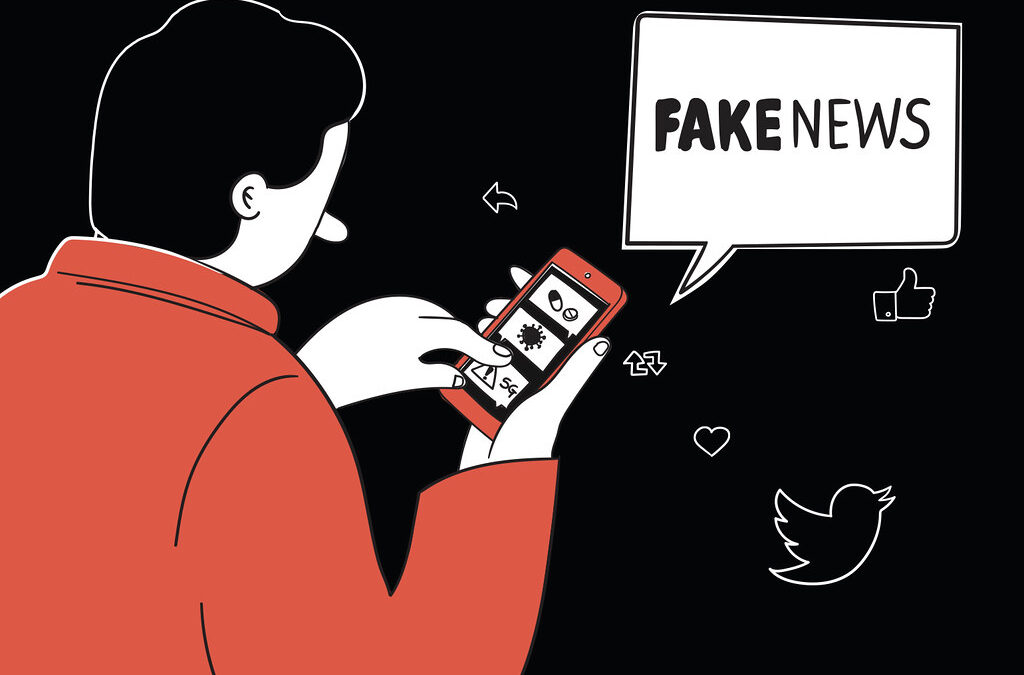
Dec 1, 2023
An opinion piece by Yogi Bratajaya, ICJ Legal Consultant and Daron Tan, ICJ Associate International Legal Adviser, Asia and the Pacific Programme, published on The Jakarta Post on 27 November 2023.
Over the past two decades, state authorities have tightened their grip on online freedom of expression in the country by enacting and applying overbroad laws purportedly aimed at legitimate objectives such as combating disinformation, but with the effect of arbitrarily censoring expression and targeting journalists and human rights defenders.
Among these are criminal provisions against intentional dissemination of harmful “false information”, i.e. disinformation. One such provision is Article 14(1) of Law No. 1/1946 on criminal law regulations, which criminalizes the act of “intentionally broadcasting false news or statements that incite chaos in society”, which may result in 10 years’ imprisonment.
Civil society organizations have rightly pointed out that the 1946 law and other disinformation laws inherited from the colonial justice system should not be applied in current times. In July 2023, a petition was filed with the Constitutional Court by several human rights organizations claiming that the disinformation provisions in Law No. 1/1946 contravene the state’s obligation to protect the right to freedom of expression and information.
Disinformation laws have frequently been enforced to restrict freedom of expression. Muhammad Asrul, a journalist, was charged in 2021 under Article 14(1) of Law No. 1/1946 for a piece detailing the alleged involvement of the son of the Palopo mayor in a corruption scandal. Human rights defenders Haris Azhar and Fatia Maulidiyanti are standing trial on charges relating to the criminal disinformation provisions of the same law in relation to a YouTube video discussing allegations of a conflict of interest by the Coordinating Maritime and Investment Affairs Minister Luhut Pandjaitan.
As a state party to the International Covenant on Civil and Political Rights (ICCPR), Indonesia is obliged to respect and ensure the right to freedom of expression and information, as guaranteed under Article 19 of the ICCPR. As affirmed by the United Nations Human Rights Committee, the monitoring body for the ICCPR, this right forms the “foundation” of a free society in ensuring the “transparency and accountability” crucial to the promotion and protection of many other rights.
Any restriction of this right must be based on a law that is precisely worded. Further, it must be necessary for and be the least restrictive measure to respond to a legitimate aim. The only aims identified as legitimate are ensuring respect for the rights or reputations of others; or for the protection of national security, public order, public health or morals.
The criminal disinformation provisions of Law No. 1/1946 by no means meet the above standards. The use of the term “false news or statements” in the criminal disinformation provisions of the law is vague, overbroad and imprecise, as the lines between facts and opinions, and truth and falsehoods can be notoriously difficult to draw.
Further, the authorities should not rely on an overbroad definition of upholding public order to justify restrictions of freedom of expression. There appears to be nothing in the law or in any correlative pronouncements to suggest whether or how “chaos in society” relates to any of the bases in the closed list of legitimate purposes under Article 19 of the ICCPR. The failure to comply with these requirements for restriction may result in the arbitrary sanctioning of legitimate expression protected under international human rights law, including public interest reporting or critical opinions concerning public officials.
Particular care must be taken concerning the application of criminal law, as it is among the harshest of tools at the disposal of the state to exert control over individuals. Criminal law may only proscribe conduct that inflicts or threatens substantial harm on the human rights of others or to certain fundamental public interests.
It is unlikely that “chaos in society” would meet the threshold of “substantial harm” needed to justify a criminal law response, in part due to the lack of clarity on what “chaos in society” actually entails. The potential of such disproportionate criminal penalties has a chilling effect on the free communication of ideas, opinions or information, as individuals will self-censor to protect themselves.
We, the International Commission of Jurists (ICJ), have documented how states across Southeast Asia have purported to combat disinformation with laws that fail to conform to international human rights law and standards on the right to freedom of expression and information.
These laws are emblematic of the immense challenges of responding to disinformation using coercive legal measures, especially if they focus on the blunt instrument of criminalization. Generally, these laws targeting disinformation have been used to suppress or discourage the expression of contentious and critical views on matters of public interest.
For instance, section 14 of Thailand’s Computer-related Crimes Act B.E. 2560 (CCA) criminalizes “false computer data” that is “likely to cause damage to the public”, or “the protection of national security, public safety […] or cause panic to the public”, with these crimes being punishable with up to five years’ imprisonment, a fine of up to 100,000 Baht (about US$3,000), or both. Similarly, Section 7 of Singapore’s Protection from Online Falsehoods and Manipulation Act 2019 criminalizes the spreading of a “false statement of fact knowing it is false, and knowing it will or is likely to harm the public interest”, which may result in five years’ imprisonment, a fine of up to S$50,000 (about US$35,000), or both.
This worrying trend must be reversed, and Indonesia should thoroughly review its laws criminalizing disinformation, with a view to amending or repealing these provisions in line with its human rights obligations. While Law No. 1/1946 will no longer be applicable with the entry into force of the revised Criminal Code in January 2026, disinformation continues to be criminalized, including under articles 263 and 264 of the new Criminal Code.
The ICJ recognizes the complexities and challenges of responding to the spread of disinformation, including in online spaces.
When disinformation threatens human rights, states have a duty to take appropriate steps, grounded in human rights law, to address serious harms.
The crafting and use of vague and overbroad criminal laws, such as Article 14(1) of Law No. 1/1946, to sanction disinformation and undermine freedom of expression is rarely the answer. While certain forms of disinformation intended to cause serious harm may warrant a legal response, civil and administrative measures, rather than criminal law, will generally be appropriate where the disinformation does not involve incitement to violence. These legal responses must comply strictly with the human rights legal standards, and guard against harms that are limited and necessary to meet a legitimate purpose identified under Article 19 of the ICCPR.
More broadly, promoting and protecting, rather than limiting, human rights can serve as a means of achieving the kind of objectives that this legislation is purported to be aimed at. As emphasized by the UN Special Rapporteur on freedom of expression, it is through protecting and strengthening freedom of expression, improving digital literacy and supporting the important work of a free and independent media and civil society, that disinformation can be more effectively countered.
First published on The Jakarta Post here.
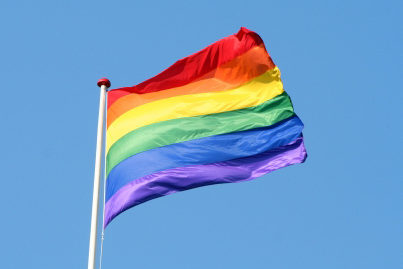
Nov 7, 2023
An opinion piece by Mathuri Thamilmaran, National Legal Advisor – Sri Lanka at the International Commission of Jurists
Recently, the Mauritius Supreme Court ruled that a 185-year-old law criminalizing consensual same-sex sexual conduct was unconstitutional. This latest ruling adds Mauritius to the growing number of States where, in the past few years, consensual same-sex sexual relations have been decriminalized, either through the adoption of specific legislation or as a result of judicial decisions. It is anticipated – and very much hoped – that Sri Lanka will join this global wave of change in the coming months.
Like Sri Lanka, most of these States had laws criminalizing consensual same-sex sexual conduct originally imposed on them as a result of colonial rule. The British introduced the Penal Code in 1833, when Sri Lanka (Ceylon) was still a British colony. The Sri Lankan Penal Code was modeled on the Indian Penal Code of 1860. While three colonial powers – the Portuguese, the Dutch and the British – had ruled Sri Lanka, it was the British who codified the criminalization of consensual same-sex sexual conduct through the introduction of criminal provisions proscribing “unnatural offences”, namely, “carnal intercourse against the order of nature” (section 365) and “gross indecency” (section 365A) in the Sri Lankan Penal Code. None of these terms has been defined in the law but, in practice, they have been interpreted and applied to those who engage in consensual same-sex sexual conduct or are perceived to do so.
Sri Lanka gained independence from the British in 1948. But, 140 years since their enactment, these penal provisions continue to be in place with a few amendments and, while rarely enforced, they have been used as a tool of harassment, blackmail and persecution against lesbian, gay, bisexual, transgender (LGBT) and non-binary persons by State and non-State actors alike. Criminalizing same-sex sexual conduct between two consenting individuals only serves to perpetuate discrimination, violence and stigma motivated in whole or in part by ignorance of, prejudice and hatred against real or imputed same-sex sexual orientation.
Human Rights violations and abuses against LGBT and non-binary persons in Sri Lanka have been documented by many Sri Lankan civil society organizations throughout the years. For example, criminalization of consensual same-sex sexual conduct has been shown to lead to instances of extortion by both public and private actors. Another documented detrimental impact of criminalization relates to the right of access to health care of the individuals concerned, while raising more broadly public health concerns. Branded “criminals” by the law, LGBT and non-binary persons are less likely to access health services due to fear of being outed, discrimination, stigma and opprobrium, thus making it harder for them, for example, to receive vital messages about safe sexual conduct and HIV/ AIDS prevention.
Sri Lanka is a State party to all core international human rights treaties and to some of their protocols and it is thus bound by international human rights law. The latter enshrines the principle of non-discrimination and guarantees to everyone the right to equality before the law and equal protection of the law without discrimination in law and in practice. The UN Human Rights Committee has called upon States to ensure that their domestic law comply with the prohibition against discrimination, including the obligation not to discriminate against a person on prohibited grounds such as “race, colour, sex, language, religion, political or other opinion, national or social origin, property, birth or other status”. In Young v. Australia (2003) the Committee held that the prohibition against discrimination under Article 26 of the ICCPR Covenant comprises also discrimination based on sexual orientation.
In 2022, while addressing the Human Rights Committee, the Sri Lankan government stated that Article 12 of the Constitution of Sri Lanka included non-discrimination on the basis of sexual orientation. Such a statement is contradicted by the criminal provisions proscribing consensual same-sex sexual conduct, and by the documented human rights violations and abuses committed against LGBT and non-binary persons over the years. The Committee, in its Concluding Observations published in April 2023, expressed concern that “lesbian, gay, bisexual and transgender persons continue to face criminalization under sections 365, 365A and 399 of the Penal Code and discrimination on a daily basis, including in accessing health care, employment and housing” and that they are “victims of arbitrary arrests and detention and are subjected to forced anal examinations in an attempt to gather evidence for prosecutions for same-sex conduct.” The Committee called upon the government to repeal the aforesaid legal provisions, to protect LGBT persons from discrimination of any kind, and to combat negative stereotypes and prejudice against them through training and awareness programmes.
Further, in 2023, during its Universal Periodic Review (UPR) at the Human Rights Council, Sri Lanka stated that a number of criminal proceedings had been revisited on grounds of non-discrimination based on sexual orientation. The Working Group of the UPR subsequently made recommendations to decriminalize same-sex sexual conduct. Unfortunately, Sri Lanka did not explicitly accept such recommendations and instead only took note of them. The UPR recommendations echo the recommendation made by the UN Committee on the Elimination of Discrimination against Women (CEDAW Committee) in 2022 that the criminalization of consensual same-sex sexual conduct between women under section 365A of the Penal Code violated their right to non-discrimination and therefore Sri Lanka should decriminalize consensual same-sex sexual conduct between women. In light of this, the continued criminalization of consensual same-sex sexual relations puts Sri Lanka at odds with its international human rights law obligations and erodes its credibility on the global stage.
In May 2023, the Supreme Court of Sri Lanka published its Special Determination on the constitutionality of the Penal Code (Amendment) Bill of 2023, whose stated objective is to repeal “provisions that make sexual orientation a punishable offence”. The recognition, for the first time, by the country’s highest court that the criminalization of homosexuality was an affront to the rights of equality and non-discrimination, dignity and privacy of a person, among others, was a watershed moment for human rights activists who had worked with LGBT persons in pursuit of this outcome. The Supreme Court’s determination also put to rest unsubstantiated rhetoric depicting homosexuality as a threat to society. On the strength of the Supreme Court’s determination that the Bill is constitutional, the Penal Code (Amendment) Bill now requires a simple majority in Parliament to pass and become law.
Parliament is expected to vote on the Bill in the coming months. It is a private member’s Bill tabled in Parliament by parliamentarian Premnath Dolawatte. Under the Bill, section 365 of the Sri Lankan Penal Code of 1883 will be repealed and replaced with reference only to “bestiality” as an “unnatural offence”, while section 365A will be fully repealed.
It is heartening to witness States around the globe reconsider and rectify outdated laws that stigmatize and criminalize consensual same-sex sexual relations. Sri Lanka should not hesitate to follow suit and finally take that vital stride towards a more just and inclusive society. Decriminalization of consensual same-sex sexual conduct would send a powerful message that Sri Lanka recognizes and respects the autonomy of individuals to choose their partners and live their lives authentically. The Supreme Court has taken the first step in that direction, it is now time for the Sri Lankan Parliament to ensure that the Bill is passed.
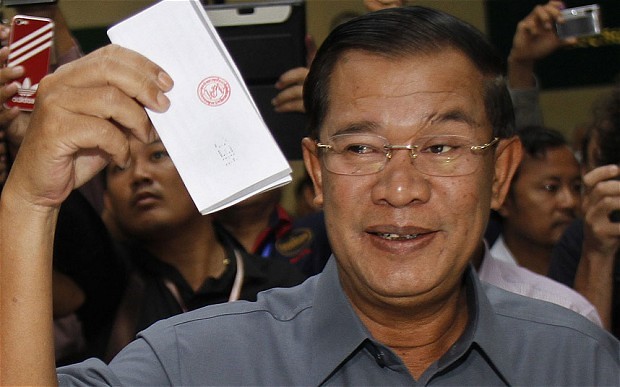
Sep 21, 2023
An opinion piece by Daron Tan, ICJ Associate International Legal Adviser, Asia and the Pacific Programme, published on Tech Policy Press on 20 September 2023.
On January 9, 2023, former Cambodian Prime Minister Hun Sen posted a video on Facebook where he threatened his political opponents with violence, which was escalated to Meta’s Oversight Board for its consideration. My organization, the International Commission of Jurists (ICJ), submitted a public comment to the Board on the case, highlighting the ongoing violence and crackdown by the authorities against perceived political opponents in Cambodia and the real risk of further human rights abuses and other harms if Meta did not take action.
The Oversight Board agreed and issued several recommendations, including that Meta suspend Hun Sen’s Facebook page and Instagram account for six months. However, Meta rejected several of the Board’s recommendations, including the recommendation to suspend the accounts, explaining that “suspending those accounts outside our regular enforcement framework would not be consistent with our policies, including our protocol on restricting accounts of public figures during civil unrest.”
Confused after reading Meta’s response? Me too. Meta’s explanations are perplexing and peppered with jargonistic references to its different policies. In essence, what Meta is saying (or at least, from what I understand) is:
- Meta does not think that Cambodia was/is in a situation of crisis under its so-called Crisis Policy Protocol. Thus, the company’s policy on restricting accounts of public figures during civil unrest will not apply.
- Using Meta’s ordinary rules, there is no basis to suspend Hun Sen’s account.
- Meta also refused to update the policy on public figures and civil unrest such that it may apply to Cambodia, where there is a long history of state violence and human rights violations. According to Meta, applying the policy to these situations could lead to indefinite suspensions for public figures.
Meta’s decision has drawn sharp rebuke from human rights groups. For instance, colleagues at Access Now underscored that Meta’s decision “sends a dangerous signal that [Hun Sen’s] rights-abusing speech will be tolerated on its platforms.”
I share these sentiments. Meta’s decision creates the expectation that there will be no accountability for Hun Sen’s longstanding abuse of Meta’s platforms to threaten and incite violence against his real or perceived opponents. Meta has indicated that continued violations of its policies will result in restrictions, but what about the abuse that has already occurred?
Meta’s decision ultimately points to a fundamental issue of how its rules are, in the first place, constructed with overly expansive language, granting Meta significant latitude to do as they please on an ad hoc basis, unencumbered by consistent application of normative constraints. Furthermore, this decision illustrates how the enforcement of Meta’s Community Standards is, like in many other instances, shrouded in secrecy.
De facto impunity for sustained human rights violations
Meta’s decision now creates two separate enforcement regimes for when a public figure incites or threatens violence online. If this happens during what Meta considers to be a situation of sudden civil unrest and violence, Meta may restrict accounts for longer periods of time. However, if this has been going on for an “indeterminate period of time” – which, arguably, makes the situation far more serious than a one-off instance of violence – then Meta’s ordinary rules apply, with a far laxer restriction framework (e.g., ten or more strikes will result in a 30-day restriction). Is Meta effectively encouraging authoritarian regimes to engage in a “history of state violence or human rights restrictions” for an “indeterminate period of time” by allowing them to escape suspension?
In applying Meta’s ordinary penalty framework, it is not apparent why Hun Sen’s repeated violations have not attracted stricter sanctions beyond just removing the January 9 video, irrespective of whether suspension might be deemed a disproportionate and unnecessary measure. Hun Sen’s January 9 video that threatens and incites violence clearly should qualify as violating Meta’s “more severe policies” and attract stricter penalties. The violation should be seen as one of particular egregiousness given that it was not an isolated incident: the Oversight Board’s decision noted at least four instances of content being posted on Meta’s platforms containing threats, including threats of violence. It was also reported that Hun Sen reposted the January 9 video, which Meta removed but without “any visible repercussions.” Evidence suggests these violations resulted in offline physical violence.
Meta claimed that it applied “appropriate account-level penalties associated with that action.” Still, we have no idea what these penalties are and how they may be proportionate sanctions for Hun Sen’s actions. Optics matter, and this failure to explain the penalties, assuming there were any, has contributed to the impression that prominent figures using Meta’s platforms to threaten and incite violence will enjoy impunity and face no consequences for their conduct. Critically, without public knowledge of the penalties, what should be a main function of Meta’s regulatory regime, i.e., deterrence of such misconduct on its platforms, is effectively nullified.
Opaque enforcement and design of Meta’s rules
Meta’s decision also demonstrates a broader pattern of a lack of transparency in enforcing its rules. We do not know what “appropriate account-level penalties,” if any, have been imposed on Hun Sen and the reasoning behind them. We do not know why there is “currently not any basis to suspend Hun Sen’s account under [Meta’s] policies.” We do not know why and how Meta determined that Cambodia did not meet the “entry criteria threshold for crisis designation,” despite the multitude of submissions pointing in the opposite direction, including in the Board’s decision and the ICJ’s public comment to the Board.
The arbitrariness in Meta’s enforcement of its rules is directly linked with how the design of the rules themselves are overbroad and ambiguous, thus granting significant discretion when making decisions. These concerns extend to the ordinary enforcement framework, its newer policies on public figures and civil unrest, and its Crisis Policy Protocol. Ironically, the latter were updated in response to the case on former President Trump’s suspension from Facebook and were presumably aimed at introducing further transparency and consistency.
It is a general principle of law, known as the principle of legality, that rules must be formulated with sufficient precision in order to not grant unfettered discretion to those charged with their implementation – a principle that Meta’s rules patently fail to conform with. For instance, what are considered Meta’s “more severe policies” under its ordinary penalty regime? How is the risk of “imminent harm” under its Crisis Policy Protocol assessed, and what other factors determine what constitutes a crisis?
It is hard not to conclude that the jargon contained in these policies is being used as ex post facto justifications and conceptual smokescreens for inconsistent and opaque decisions.
The newsworthiness allowance
However, not all hope is lost, as Meta is still mulling over the feasibility of the Board’s recommendation to clearly state that “content that directly incites violence is not eligible for a newsworthiness allowance, subject to existing policy exceptions.” The ICJ had made an identical call in our public comment, in line with article 20(2) of the International Covenant on Civil and Political Rights, which requires the prohibition of incitement to violence, hostility, or discrimination.
At present, Meta’s newsworthiness allowance currently allows Meta to keep offensive content that violates its rules if it decides that the public interest value of keeping the content outweighs the risk of harm. This allowance was also a central tenet of the Board’s case, as Meta had been unsure whether Hun Sen’s violent speech should qualify as “newsworthy” and thus be left up.
It bears repeating that one of the very few limitations that is mandatory under international human rights law is the prohibition of incitement to violence. Meta’s current newsworthiness allowance allows for a loophole in this prohibition, which is, as above, exacerbated by the ambiguity and opacity in which the policy is currently constructed and enforced. If not applied with additional protections, this allowance would eviscerate the protection provided by human rights law against expression inciting violence. Meta’s decision to reject the Board’s recommendations to clarify its policy on public figures sets a dangerous precedent going forward.
However, there is still an opportunity for it to at least take some positive steps towards abiding by its human rights responsibility to respect human rights, in line with the UN Guiding Principles on Business and Human Rights, by revising its newsworthiness allowance in line with human rights law and standards. Having an unequivocal carve-out to its newsworthiness allowance for incitement to violence would at least allow Meta to be consistent when adjudicating similar violent content in the future, even if the rest of its rules and standards leave much to be desired.
First published on Tech Policy Press here.
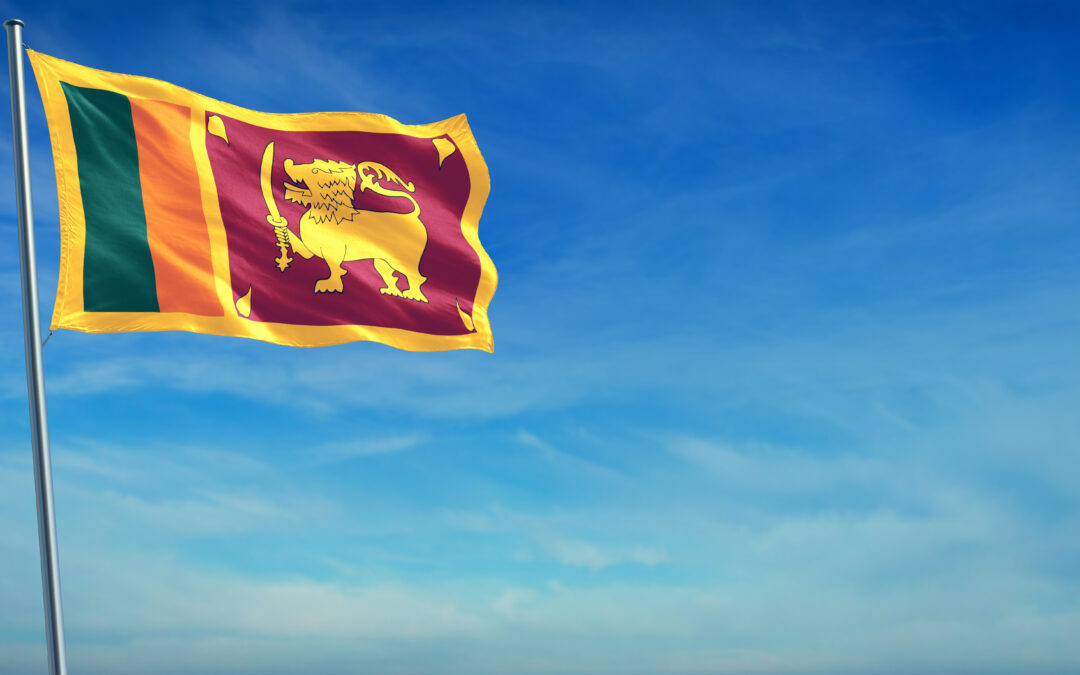
Aug 16, 2023
An opinion piece by Mathuri Thamilmaran, National Legal Advisor – Sri Lanka at the International Commission of Jurists
Lesbian, gay, bisexual, transgender and intersex (LGBTI) individuals in Sri Lanka have too often been subjected to discrimination, abuse, violence and harassment in violation of their human rights. Throughout the years research reports have continuously identified the Sri Lanka Police as the foremost perpetrators of human rights violations against LGBTI individuals. Developments in the last few months saw both the Sri Lanka Police and the Human Rights Commission of Sri Lanka (HRCSL) acknowledging this fact and seemingly taking steps to remedy the situation.
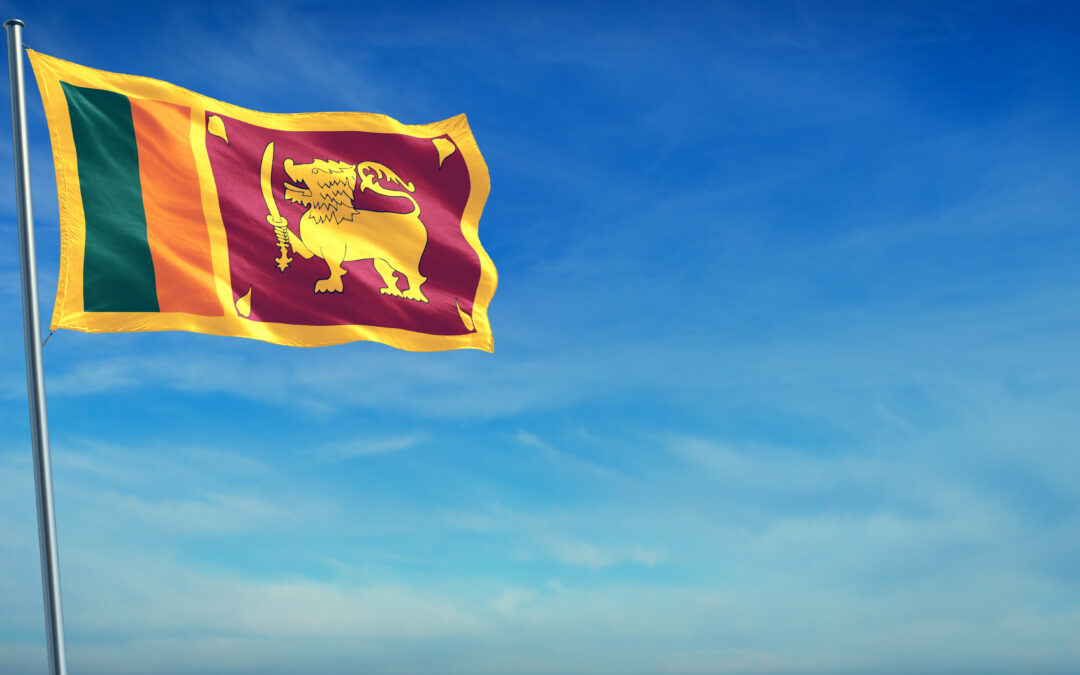
Jul 26, 2023
An opinion piece by Mathuri Thamilmaran, National Legal Advisor – Sri Lanka at the International Commission of Jurists
A state minister’s recent comment has once again brought to the forefront the need to include comprehensive sex education in the Sri Lankan school curriculum. Back in 2010, the then UN Special Rapporteur on the Right to Education commented in his report to the General Assembly that “sexual education must pay special attention to diversity, since everyone has the right to deal with his or her own sexuality without being discriminated against on grounds of sexual orientation or gender identity. Sexual education is a basic tool for ending discrimination against people of diverse sexual orientations.” Indeed, the experiences faced by lesbian, gay, bisexual and transgender (LGBT) students in Sri Lanka indicate that comprehensive sex education should include learning about sexual orientation and gender identity and expression (SOGIE) in order for schools to be an inclusive safe space for all students.









